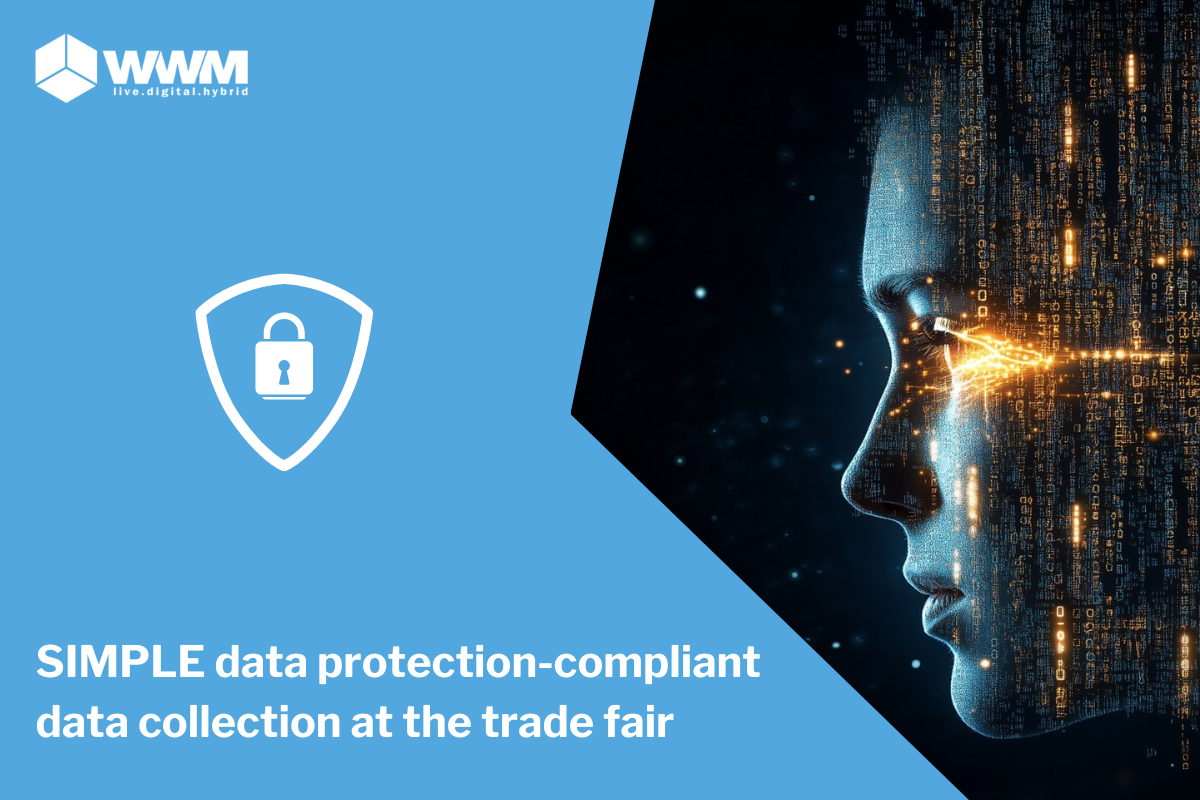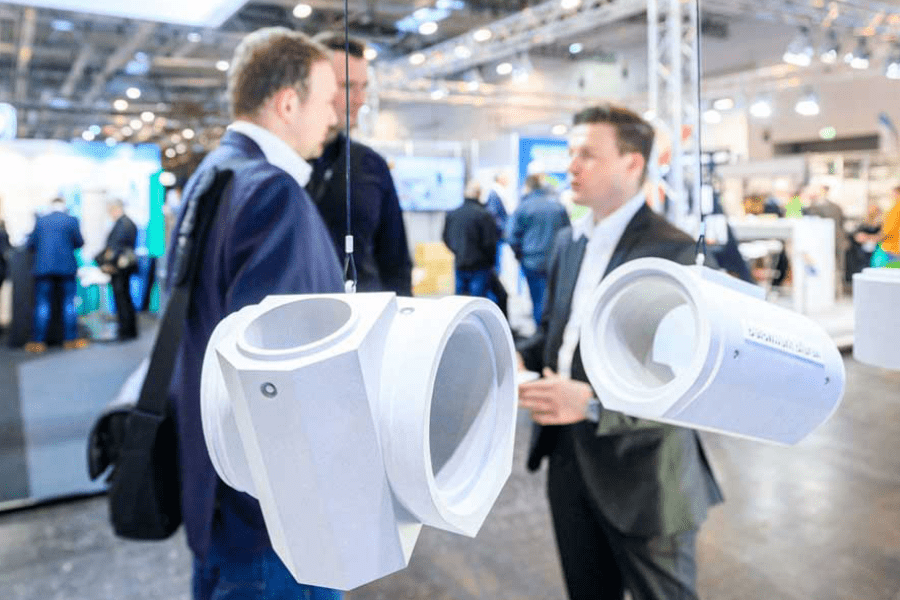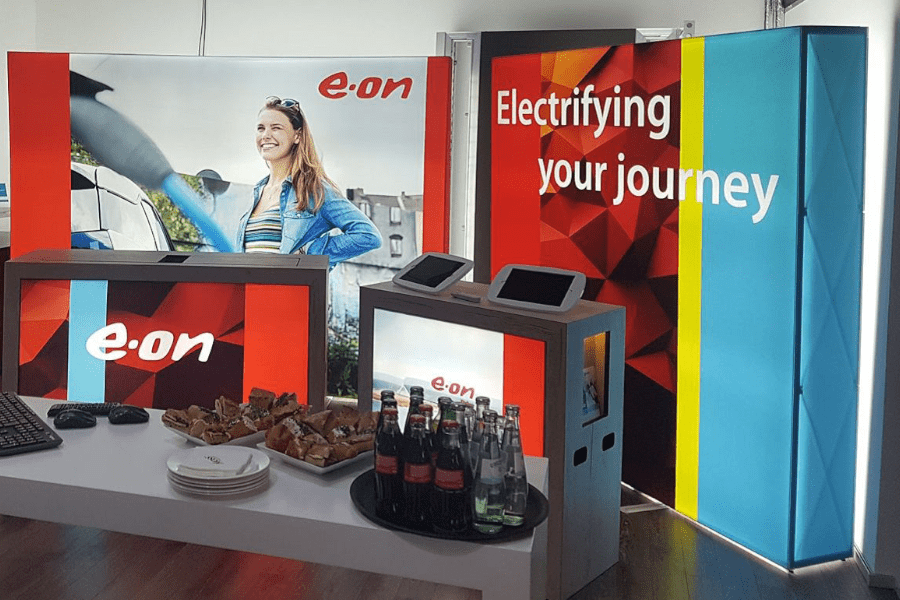Storage of exhibits: Stand builder vs. own company
As an event manager or the person responsible for your company's trade fair appearances, you know best about the challenges of event and trade fair...
3 min read
![]() Guest author: Dr. Ralf Schadowski
:
Updated on August 19, 2025
Guest author: Dr. Ralf Schadowski
:
Updated on August 19, 2025

In today's business world, trade fairs and exhibitions play a central role in the marketing mix of companies. They provide an excellent platform to meet potential customers, build business relationships and showcase new products. An important component of these activities is the collection of data. But how can you ensure that this data collection complies with data protection regulations? And what best practices are there for using the data profitably?
In today's business world, trade fairs and exhibitions play a central role in the marketing mix of companies. They provide an excellent platform to meet potential customers, build business relationships and showcase new products. An important component of these activities is the collection of data. But how can you ensure that this data collection complies with data protection regulations? And what best practices are there for using the data profitably?
The GDPR forms the legal framework for data protection in the European Union and stipulates that personal data may only be collected and processed if there is a lawful basis for doing so. One of the central bases is the consent of the data subject. This consent must be voluntary, specific, informed and unambiguous.

The following steps should be observed in order to obtain consent in compliance with data protection regulations:
Implementing these principles on an exhibition stand requires good preparation and suitable tools. Here are some tips for practical implementation:
Once the data has been collected in compliance with data protection regulations, the question arises as to how it can be used effectively to generate business opportunities.
Segmentation and analysis
The first step is to segment the collected data. Specific target groups can be identified and targeted through analysis and segmentation. This increases the relevance of marketing measures and the likelihood of closing deals.
Personalization of marketing measures
Personalized marketing measures are significantly more effective than general approaches. The collected data can be used to create personalized emails, offers and content that are tailored to the interests and needs of potential customers.
Automation
The use of marketing automation tools can make the process of using data much easier. These tools make it possible to plan and execute personalized campaigns without the need for manual effort. This allows potential customers to be targeted systematically and efficiently.
Measurement and optimization
Finally, it is important to measure and continuously optimize the effectiveness of the measures implemented. Analysis and tracking tools make it possible to monitor marketing measures and adjust them to increase their effectiveness.
The data protection-compliant collection and use of data at trade fair stands is a challenge, but one that can be overcome with good preparation and well thought-out consent management. Compliance with legal requirements creates trust and forms the basis for successful business transactions. Through targeted analysis and use of the collected data, companies can optimize their marketing measures and increase their chances of closing deals. Trade fairs therefore remain an indispensable marketing tool - provided that data protection requirements are met.
A recommended solution is the introduction of digital consent management as a managed service by a specialized partner. This service takes over the data protection-compliant collection and management of data from all trade fair visitors. At the end of the trade fair, the company receives a prepared Excel file with the relevant visitor data, which can be used for targeted communication and tracking. This means that all marketing activities are based on sound and lawful consent, which strengthens customer trust and maximizes the chances of successful business deals.

As an event manager or the person responsible for your company's trade fair appearances, you know best about the challenges of event and trade fair...

Many companies ask themselves whether they can participate in trade fairs or events from a financial perspective. Small companies in particular are...

After a trade fair, the stand builder's invoice includes the item for the storage of empties and full goods. Depending on the size of the stand, this...